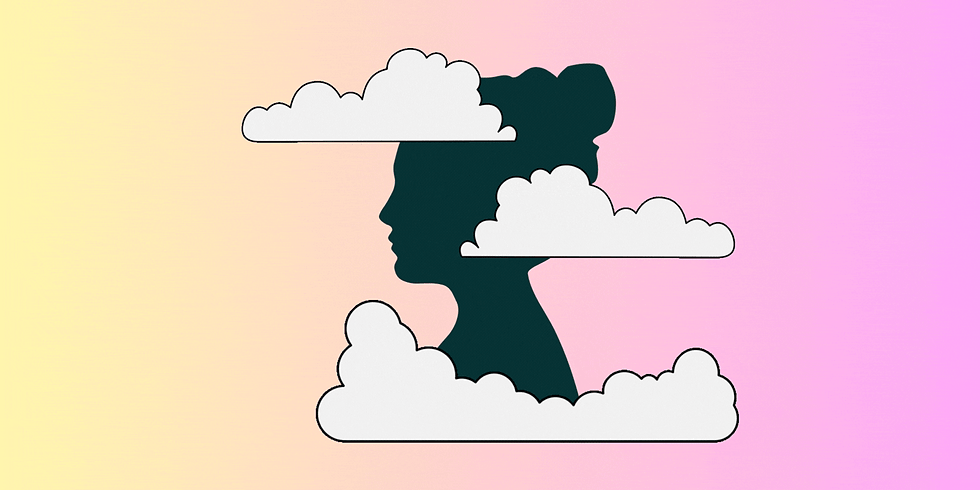Can You Be Too Good?
- Team Nolmë Labs

- Apr 28, 2021
- 4 min read

Image credit: Wellcome Library, London.
Lessons about morality come in many different shapes and sizes. Some lessons go deep and have a big impact, some are shallow and have almost none. One such lesson comes from Scrupulosity, or Moral OCD.
According to the Diagnostic and Statistical Manual of Mental Disorders (DSM V), Obsessive-Compulsive Disorder (OCD) is a chronic disorder in which a person has uncontrollable and recurring thoughts - called obsessions - and/or behaviours that they feel the urge to repeat over and over - called compulsions - in order to minimize the anxiety caused by obsessions. Moral OCD is a rare form of Obsessive-Compulsive Disorder (OCD) that is dominated by thoughts of being ethically flawed or morally bankrupt (Summers & Sinnott-Armstrong, 2019).
This manifests itself as an excessive concern with the idea of being “morally good”. In such a disorder, one’s anxiety of not meeting some moral or religious standard results in compulsive behaviour. An example of Moral OCD in pop culture is the character Chidi from The Good Place. Chidi, a moral philosophy professor, gets impossibly hung up on the slightest decision, especially moral dilemmas to the point that he gets physically sick. He finds himself obsessing over the morally correct decision at every turn of the way, and also writes an incredibly long thesis on how to be a good person that he never seems to finish.
As observed by Summers and Sinnott-Armstrong in their book Clean Hands: Philosophical Lessons from Scrupulosity (2019), this focus on acts to reduce anxiety corrupts moral judgement. Moral Judgement is a concept being studied since time immemorial. Moral OCD can therefore potentially shed some light on various aspects of morality, primarily the nature of moral judgement.
Is Psychiatry Morally Neutral?
The very nature of Moral OCD begs the question of moral neutrality of psychiatric diagnoses of this mental disorder, and a larger question about whether psychiatry is morally neutral. The diagnoses of Moral OCD can be absolutely neutral considering the 4 D’s of diagnosing a mental disorder – deviance, dysfunction, distress, and danger. Deviance refers to a certain degree of deviation from the established cultural norms. Dysfunction is any maladjustment significant enough to interfere with a person’s daily functioning in a major way. Distress is related to dysfunction in that it becomes an important way to grade perceptual dysfunction in an individual’s life. Finally, the danger component consists of an element of danger/harm to either the self or others.
More often than not, the obsessions and compulsions of Moral OCD meet all 4 of the D’s, demanding a diagnosis (5th ed.; DSM-5; American Psychiatric Association [APA], 2013). As for the question about psychiatry being morally neutral, professionals largely agree that moral judgement should be kept out of clinical settings for it has the capacity to impair clinical judgement. However, this becomes extremely difficult to do in practice due to a tacit presumption of moral responsibility towards a client.
Admirable Character Traits
If admirable character traits are defined simply by behaviour, any person diagnosed with Moral OCD is a saint. But, as Aristotle, in his book The Nichomachean Ethics (1847) emphasized long ago, moral character cannot be defined by behaviour or, at times, even by simple statements of motivations. It is a mean state, a settled condition one is in when they are well-meaning in their feelings and actions. Differentiating between truly admirable character traits and moral OCD requires a deeper look into why one has the motivation to be good, along with other motivations that they possess or lack. In moral OCD, anxiety is the driving force and any act that may be considered “morally good” is an attempt at relieving this anxiety, making this act self-serving.
Does Moral OCD Reduce Responsibility?
Because the behaviour exhibited by someone with Moral OCD is driven by anxiety, it may be said that they are less responsible than those without any mental illnesses. Considering a Reasons-Responsiveness account of responsibility, this seems plausible. A reasons-responsiveness theory explains free agency in terms of the agent’s sensitivity to reasons. An agent who acts freely is responsive to variation in a suitable spectrum of reasons. This means that the agent must have not only guidance control, but also regulative control over their actions. Their freedom must consist partially in their ability to act upon alternatives. Since someone with moral OCD do not essentially feel the freedom to engage in behaviours apart from the compulsion, they may just be considered less responsible for the consequences than their neurotypical counterparts.
Moral OCD therefore provides illuminating observations about central aspects of ethical life and it provides potentially significant observations about the reasons-responsiveness accounts of responsibility in light of the plausible idea that people in the grip of moral OCD are less responsible for their disorder-generated actions than those without mental illness. This specific deployment of ‘moral psychiatry’ gives quite an interesting look into a topic that has been debated since time immemorial and is worth probing into further.
Tanya Gupta (she/her) is a research assistant at Nolmë Labs, and is pursuing a Masters of Science degree in Clinical Psychology. She aims to eventually work in a therapeutic setting with families and survivors of abuse.








Comments